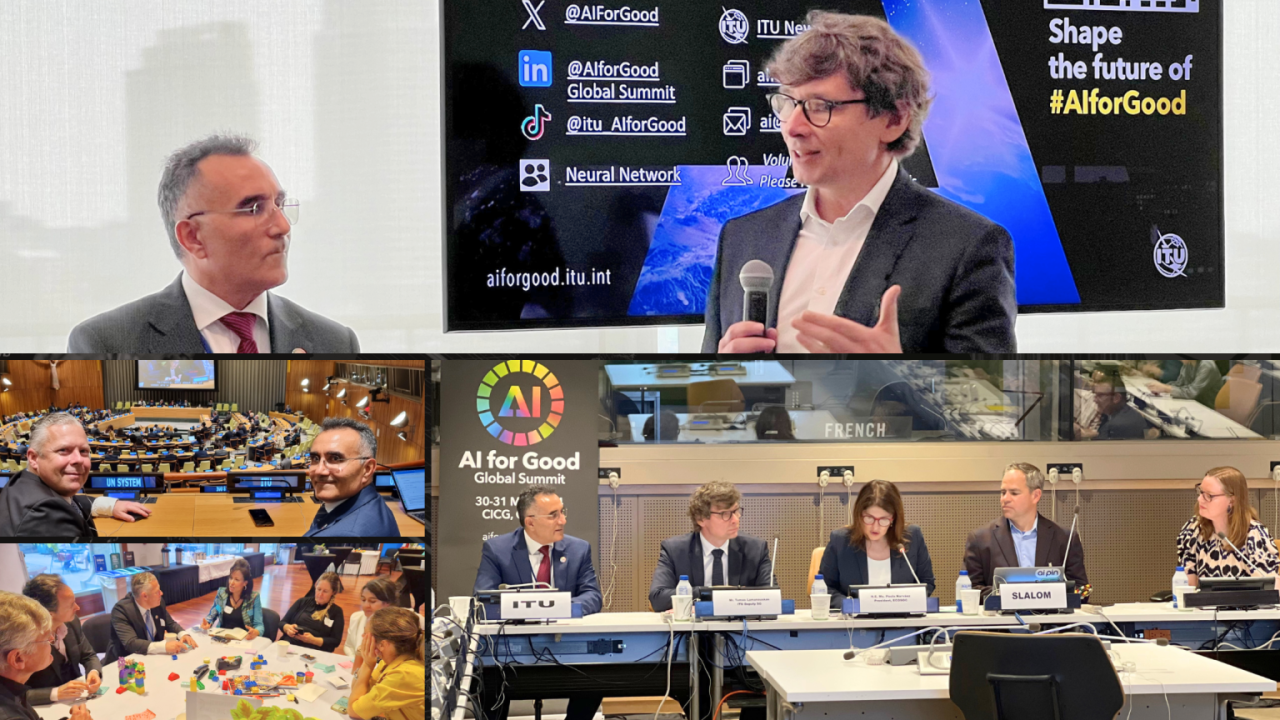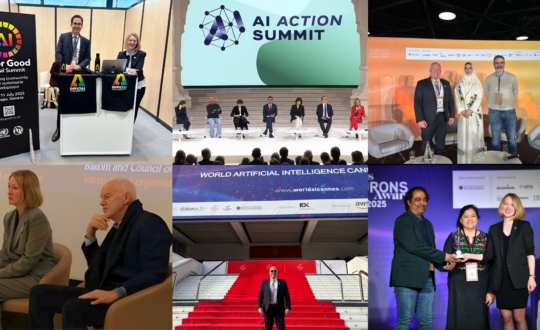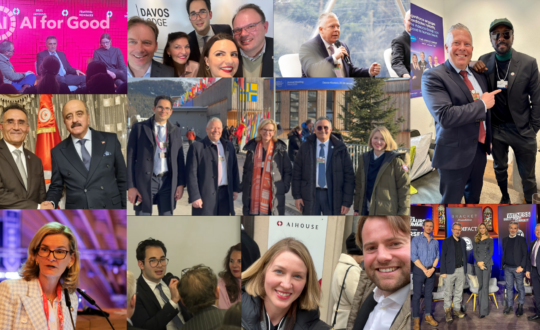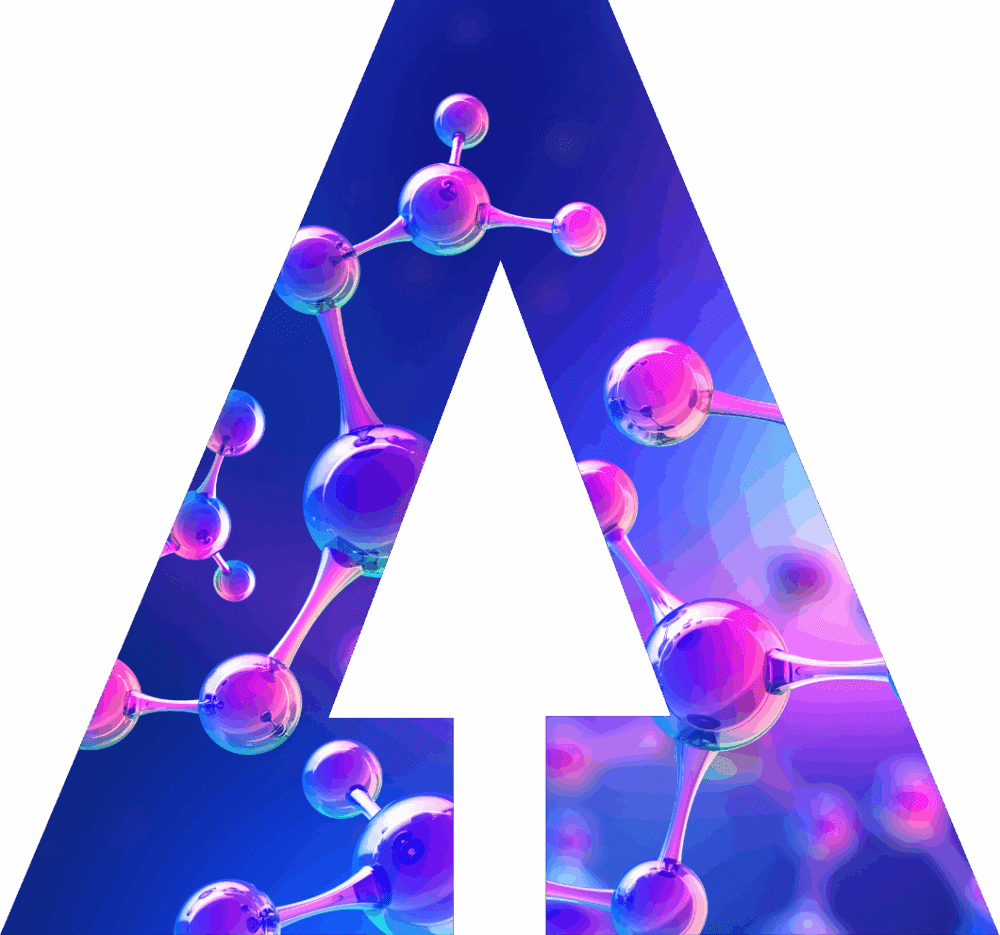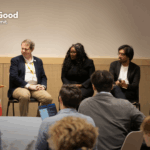In early May, Tomas Lamanauskas, Deputy Secretary-General at International Telecommunication Union (ITU), along with Bilel Jamoussi, Deputy to the Director and Chief of the Telecommunication Standardization Policy Department (TSB), Fred Werner, Chief, Strategy and Operations at AI for Good ITU travelled to New York joining Ursula Wynhoven, Director and Representative to the UN ITU liaison office for a series of events representing ITU’s Geneva duty station and AI for Good. The premier UN event on AI is set to return on May 30-31, focusing specifically on brain-machine interfaces (BMI).
AI for Good Briefing
On May 6, Lamanauskas and Jamoussi joined Ambassadors from the Permanent Missions of Costa Rica, Guatemala, Japan, and Romania to the UN, along with ITU and UNESCO, for an ambassadorial briefing at UN Headquarters. Nearly 80 ambassadors, UN partners, and diplomats attended the briefing to hear about ITU AI standards, capacity building, governance, and the upcoming AI for Good Global Summit. Ursula Wynhoven, played a pivotal role in both the organization and emceeing the Ambassador lunch. This briefing aimed to provide ambassadors with a strategic overview of emerging technologies poised to significantly impact the future of global diplomacy, security, and governance. It also presented the AI for Good platform, the UN’s leading multi-stakeholder platform on AI. The briefing also featured by Gabriela Ramos’ video remarks, Assistant Direct-General for Social and Human Sciences, UNESCO.
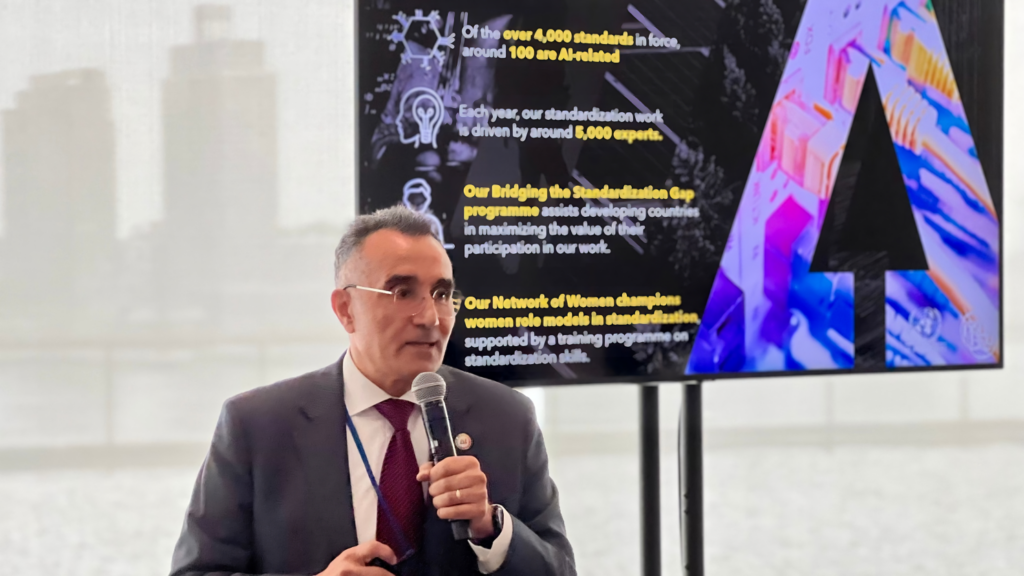
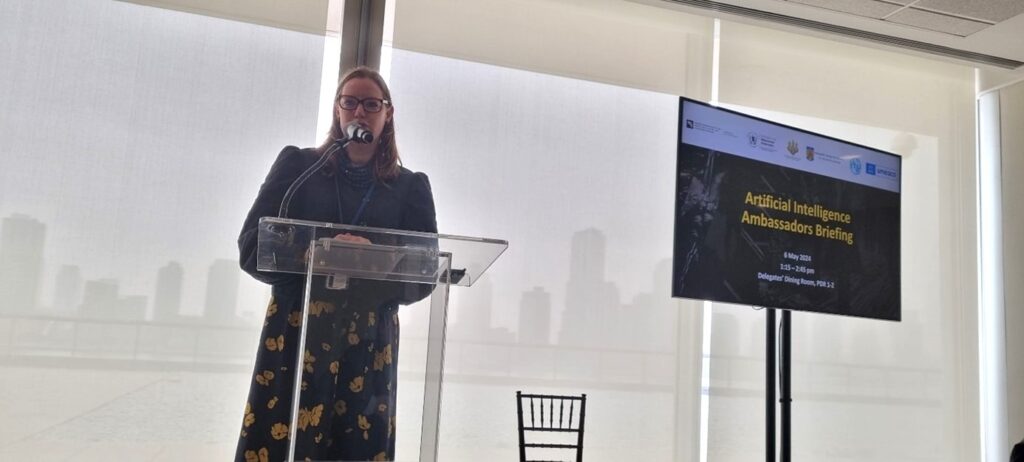
UN Innovation Leads Retreat
During a two-day UN Innovation Leads Retreat, Werner and various heads of innovation or those responsible for innovation at different UN agencies collaborated to co-create a shared vision for innovation within the UN by 2030. This vision includes a non-binding commitment to establishing the conditions necessary for success, informed by lessons learned thus far. It will build on best practices, set achievable goals regardless of the stage of the innovation journey, and align with the UN 2.0 agenda. Additionally, this vision could be supplemented by a compendium of emerging good practices from across the UN.
Over the past decade, most UN entities have formed innovation teams, units, or labs to introduce new ways of thinking and working, test new ideas, and accelerate the adoption of innovative approaches within their organizations. At ITU, we utilize AI for Good as an R&D lab for innovation.
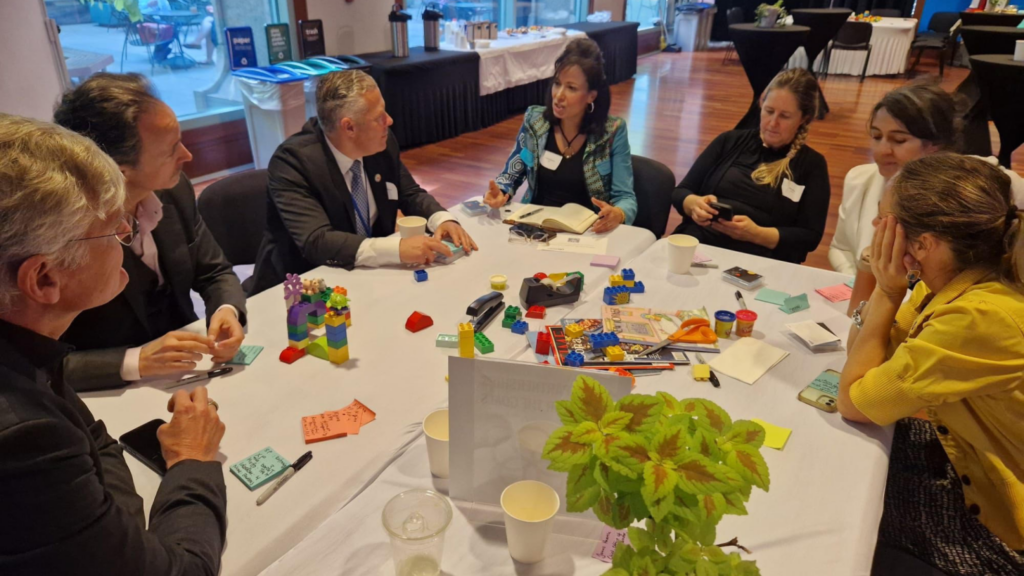
ECOSOC’s Special Session on AI
The ECOSOC Special meeting on “Harnessing Artificial Intelligence for the Sustainable Development Goals (SDGs)” featured remarks by UN Deputy Secretary-General Amina Mohammed at the opening in New York, along with contributions from Tomas Lamanauskas and many other distinguished participants. Today’s discussion on leveraging artificial intelligence for the SDGs is exceptionally timely. When applied safely, AI can accelerate progress towards the SDGs, enhance decision-making, and drive innovation. It is not a distant dream but a present reality.
The Special Meeting, attended Jamoussi and Werner by aimed to examine the role of governance frameworks in guiding the ethical and responsible deployment of AI technologies to support the achievement of the SDGs. Additionally, it showcased real-life examples and case studies illustrating how AI has been utilized to address specific SDGs, highlighting successes, challenges, and lessons learned. Furthermore, the meeting facilitated knowledge sharing, collaboration, and partnerships among stakeholders from governments, international organizations, academia, civil society, the private sector, technical standards organizations, and AI experts in leveraging AI for sustainable development.
AI is already optimizing energy use, improving medical diagnostics, monitoring biodiversity, expanding educational opportunities, and much more. Many of you are witnessing the benefits of AI across various sectors in your countries.
Three key takeaways are: we must ensure that AI is equitable, accessible, and ethical. For more details, read the official press release.
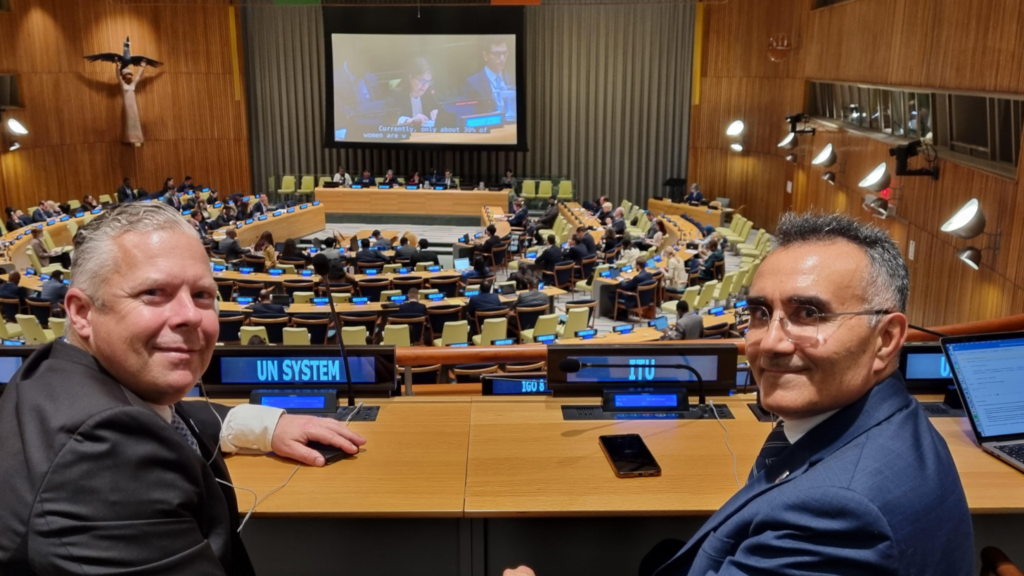
AI for Good Lab
The AI for Good Lab, inspired by the AI for Good initiative, was a key feature of the 9th Science, Technology, and Innovation (STI) Forum 2024. With less than six years remaining to achieve the United Nations’ SDGs, the lab aimed to demonstrate the potential of AI in leveraging vast quantities of data to advance these global objectives. AI for Good is an ongoing digital platform where AI innovators and stakeholders collaborate to identify and scale practical AI solutions for the SDGs. Organized by the International Telecommunication Union (ITU) in partnership with 40 UN Sister Agencies and co-convened with Switzerland, it represents the leading action-oriented, global, and inclusive UN platform on AI.
The AI for Good Lab, a collaborative effort by ITU, Slalom Element Lab, and the UN Department of Economic and Social Affairs (DESA), was strategically scheduled shortly after the ECOSOC Special Session on “Harnessing Artificial Intelligence for Sustainable Development Goals (SDGs).” This lab provided the UN community in New York with hands-on experience of cutting-edge AI applications, many of which are already being utilized by UN entities to accelerate progress towards the SDGs.
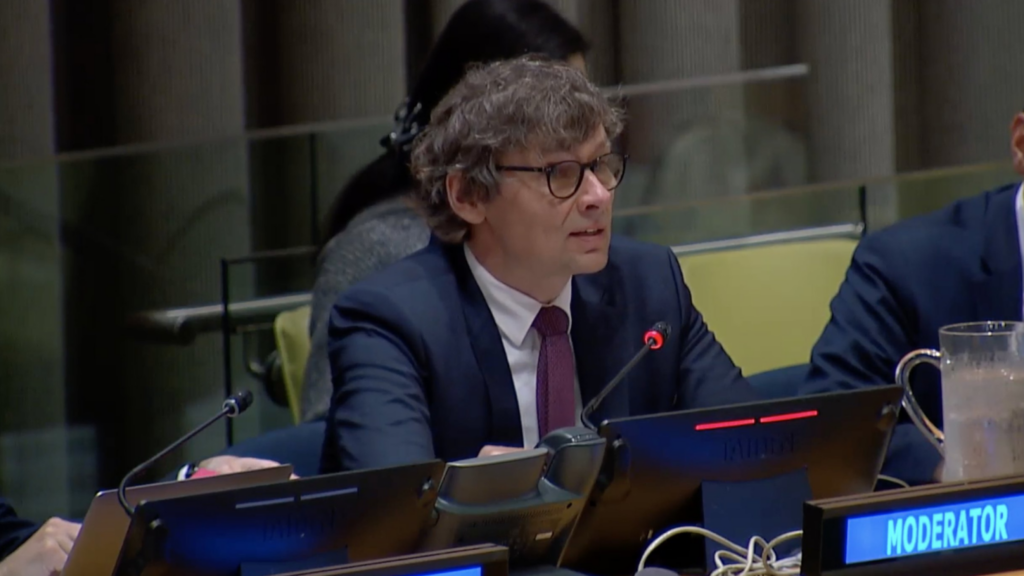
he lab’s activities began with an introductory segment featuring brief remarks by key figures, including H.E. Ms. Paula Narváez, Ambassador and Permanent Representative of Chile to the United Nations; Tomas Lamanauskas, Deputy Secretary-General of ITU; and Mr. John Tomik, Managing Director of Slalom. Following these introductions, participants engaged with interactive hands-on stations. These stations offered demonstrations and real-life examples of how AI is contributing to the achievement of the SDGs. Participants had the opportunity to explore and experiment with AI technologies, gaining a deeper understanding of their practical applications and impact.
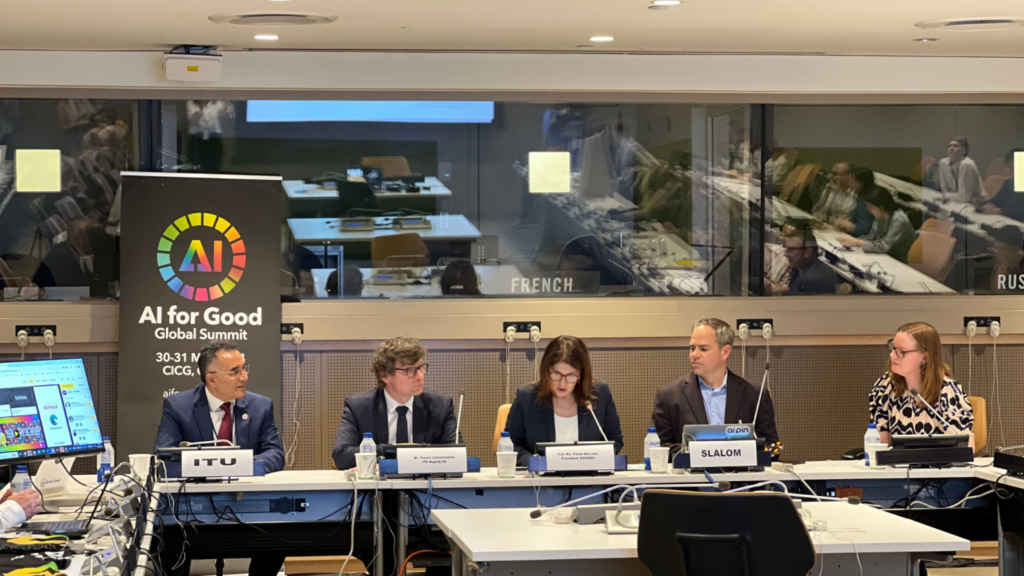
Confirmed AI applications showcased at the lab included five from Slalom and five from UN entities such as ITU, UNODC, UNDP, DMSPC, and UNICC. These applications highlighted diverse AI-driven initiatives and solutions that are already making a significant impact in areas like energy optimization, medical diagnostics, biodiversity monitoring, and educational opportunities.
Slalom Element Lab, a part of Slalom—a modern consulting firm specializing in technology, business, and transformation—played a significant role in this event. The Element Lab focuses on product innovation, software engineering, and digital transformation, helping organizations build, deploy, and manage software applications and products. Their expertise in designing and building digital solutions was showcased through the interactive demonstrations provided at the lab
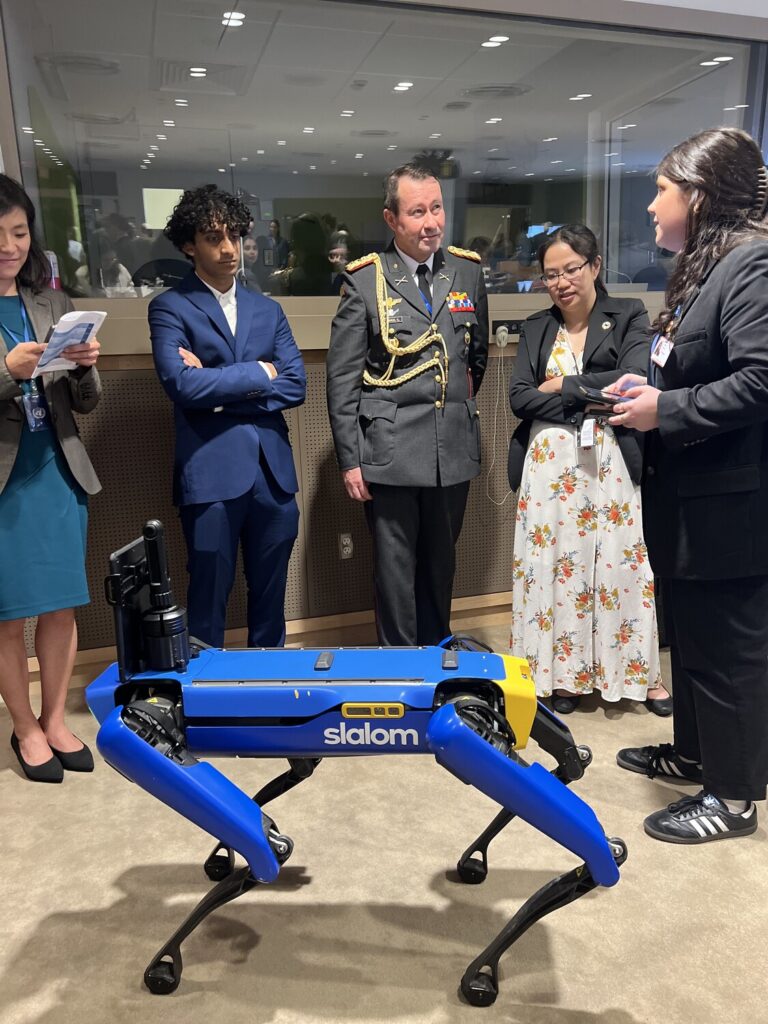
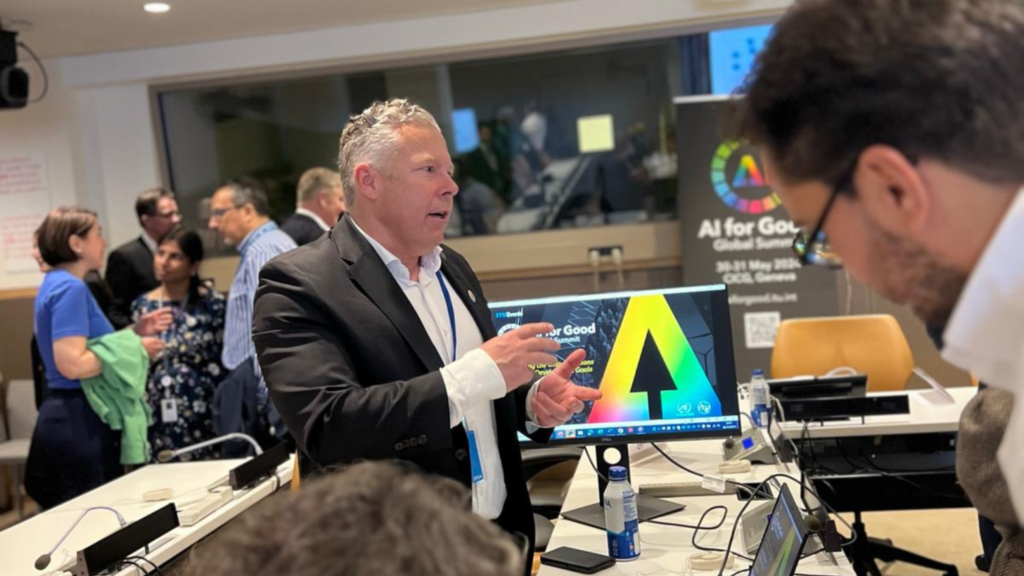
All these different activities and sessions highlight the critical role AI can play in achieving the United Nations’ SDGs. These initiatives collectively reflect a concerted effort to harness AI’s potential to address global challenges, showcasing successful case studies and fostering knowledge sharing among stakeholders from governments, international organizations, academia, civil society, and the private sector. As we look forward to the AI for Good Global Summit on May 30-31 in Geneva, Switzerland, there is an exciting opportunity to build on this momentum, focusing on brain-machine interfaces and further exploring AI’s transformative impact on sustainable development. This summit promises to be a key event in advancing AI for the global good, reinforcing the message that AI is not just a future possibility but a present reality with immense potential for positive change.



